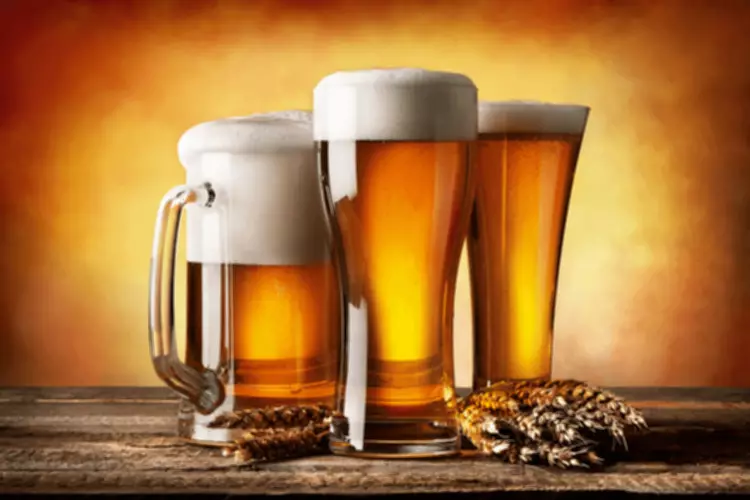Content
But if you don’t fancy AA there are alternatives such as Smart Recovery and various group resources offered by the NHS. Emotionally, you may feel some anxiety or sadness about ending a chapter of your life and nervousness about the future. You can become conditioned to reach for a drink when your environment offers up certain cues. We all become conditioned to have certain responses to triggers throughout our lives. It’s normal for certain stimuli to cause a reaction in your mind and body without even being aware of it.

Medical experts now use the term “alcohol use disorder” rather than “alcohol abuse” to address the concern of excessive drinking. Alcohol withdrawal symptoms usually start within hours after you stop drinking, peak in a day or two, and improve within five days. But in some alcoholics, withdrawal is not just unpleasant—it can be life threatening. Talk with a healthcare professional if you’re concerned you may experience detox symptoms when quitting drinking or cutting back. There are several reasons that moderation may work better for an individual than complete abstinence. One may be that a person’s drinking problem is mild enough that changing their behavior around alcohol isn’t as big a challenge.
Talk to a mental health professional.
Dry January (as well as its cousins Dry July and Sober October) has become a popular way for people to experiment with drinking less. Officially begun in Great Britain in 2013, it has grown quickly, with over four million people in the U.K. Mindful drinking means being attentive to the impact that alcohol has on you, and making conscious choices about how you consume it.

Or you may be thinking about stopping, but you’re not sure if you’re ready to start. Sunnyside provides a simple but structured approach to help you drink more mindfully. Discover more energy, restful sleep, and improved wellness with a plan designed to fit your life. Sunnyside uses a psychology-based approach to help you drink more mindfully, no matter what your goal is. You’ll get a 100% custom plan, then daily texts to track your progress and help you stay on target.
Resources for Friends and Family
It’s always best to see a doctor for an evaluation, but for a quick check, take our alcohol use survey to see where you stand. The trouble is that quitting is rarely easy, and the best solution isn’t always clear. In fact, less than eight percent of those addicted to alcohol get help each year. There are now several evidence-based solutions for alcohol addiction—and one of them is bound to work for you.
Helping people with drug or alcohol dependence feel valued, and that they have a worthwhile life to live outside of their addiction, often plays a big role in recovery. It’s also a good idea to check with a doctor to assess any strain or damage https://ecosoberhouse.com/ that drinking has done to your body, and take steps to restore your overall health. The exact symptoms of alcohol withdrawal depend upon how much you drink and your individual body chemistry, but they tend to follow a similar pattern.
Learn how to say, “No.”
A sober life doesn’t have to mean more time at home as you try to block out triggers. It can mean more time for your other interests, and even new interests. More time to meet new people, catch up with old friends and try new things. In order to change your drinking habits, your first step is to take a close How to Stop Drinking look at your current behaviors and find patterns. About 50% of people who drink in this group have alcohol use disorder. Examples of medical conditions for which it’s safest to avoid drinking include liver disease (such as from hepatitis C), bipolar disorder, abnormal heart rhythm, and chronic pain.
Alcohol use disorder can be mild to severe, depending on the number of symptoms a person has. You might notice this effect more if you were drinking to manage your mood, such as drinking to temporarily relieve negative emotions or boost positive ones. Along with anxiety and irritability, you may also experience mood swings when you give up alcohol. If you struggle to sleep, talk to your doctor about solutions that might help.
Positive support persons are those who recognize your goals and stand by you as you work to accomplish them. They’re the people you feel safe being vulnerable with, and you trust to hold you accountable. Maybe you’re worried that people will judge you for struggling with drinking. Or maybe you’re worried that they’ll judge you for wanting to quit.
Medication has been an option for many decades, and despite having a strong success rate it is not very well known. This summary was prepared by the John M. Eisenberg Center for Clinical Decisions and Communications Science at Baylor College of Medicine, Houston, TX. It was written by Amelia Williamson Smith, M.S., Thomas Kosten, M.D., and Michael Fordis, M.D. People with alcohol use disorder reviewed this summary.
